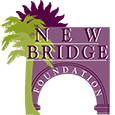Many alcohol and drug recovery facilities include what is called a dual diagnosis program. For most people outside of the medical field, this may be a completely new term. However, dual diagnosis is surprisingly common among those with substance abuse problems. To learn why dual diagnosis treatment is so critical for successful recovery, we must first understand what it is and how to treat it.
What Is Dual Diagnosis?
A dual diagnosis is the medical recognition of a co-existing mental health condition in an alcoholic or addict. Simply put, an individual who has a substance use disorder, as well as another mental health disorder, is diagnosed as having a dual diagnosis also referred to as a co-occurring disorder. Oftentimes, this other problem (or diagnosis) is a key trigger for the addiction. For instance, a person with social anxiety might turn to cocaine to get themselves in the mood for public appearances. Someone with depression could find themselves drinking to escape their constantly dark moods. A trauma victim may take to heroin to find a sense of peace that eludes them normally.
It can be hard to tell which part of the dual diagnosis came first, as one is sometimes as likely a cause of the other as it is a symptom. Thankfully, this makes no considerable difference. The only thing that is important is that both conditions are treated with equal vigor.
Warning Signs
What are the signs and symptoms of dual diagnosis? How do you identify them? The following is a short list of some of the tell-tale signs:
- Change in Behavior—This may include confused thinking, problems with concentration, or suicidal ideation.
- Problems with Responsibility—Things that are quite ordinary to most people can appear daunting to a dual diagnosis sufferer. For instance, keeping a job, interacting with family, even tending to simple errands can seem impossible to someone debilitated by the severe effects of a dual diagnosis.
- General malaise—Not surprising, a person saddled with both an addiction and a mental health disorder is likely to find ordinary life exhausting, unsatisfying and onerous. Anger, regret, and frustration are all likely to be their constant companions.
- Mood Swings
Treating Dual Diagnosis
As with other addictions and mental health problems, there is no easy solution for dual diagnosis. However, with a comprehensive plan for rehabilitation, comprised of the proper combination of therapies and treatments for the individual’s needs, recovery is possible.
Among the options for treating dual diagnosis are:
- Counseling—Individual, group, and family therapy are usually a key aspect of the recovery plan. Counseling is used to understand the client and help them develop tools and coping strategies that will assist in the road to recovery.
- Medication—Prescription medications, when indicated, can be helpful and useful.
- Cognitive-Behavior Therapy (CBT) —CBT is a goal-oriented, problem-solving type of therapy aimed at identifying and changing problematic behaviors associated with the dual diagnosis.
Finding Help
New Bridge Foundation® in Berkeley, CA, has more than five decades of experience in the addiction recovery field. If you or someone you know is suffering from a substance abuse problem coupled with mental health issues, or you’re simply looking for more information, contact us by calling 866.772.8491.







